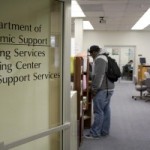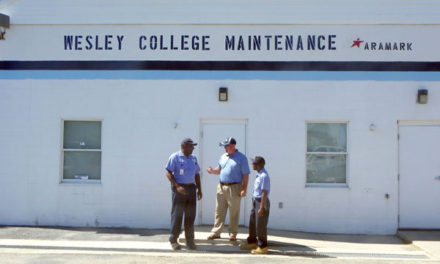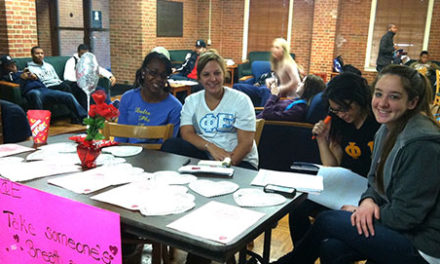By Brian Baker (Whetstone Staff Writer)
Steven Penland said he didn’t return to Wesley College this semester because the school didn’t offer him what he wanted.
“My main reason for leaving Wesley was because they did not offer a certain major (Criminal Justice) to help me in the future, and the media department wasn’t doing enough for me,†he said.
 Penland attended Wesley his freshman year and one semester as a sophomore.
Penland attended Wesley his freshman year and one semester as a sophomore.
“They could have kept me there if they offered more courses on what I want to do rather than feeling forced to take another major and courses.â€Wesley College’s retention rate, which measures the percentage of students who return to school each semester, rose to 46 percent from 39 percent last year, according to Dr. Patricia Dwyer.
Because fewer students tend to leave in the middle of the year –unlike Penland – retention from the 2012 fall semester to the 2013 spring semester was 78 percent.
The rate helped spur U.S. News and World Report’s website, which ranks colleges, to rank Wesley 33 out of 73 north-regional small liberal arts colleges.
The retention rate has also prompted the college to seek ways of keeping students coming back.
Wesley has been working with CREDO, a consulting group, to create the Residence Life Paradigm, a 3- to 5-year plan focused on implementing living-learning communities. There is an Honors Wing already established, and two more communities are slated to be added this fall.
“We first want to add a wellness and service community, focusing on physical, mental, and nutritional wellness along with having community service involved,†said Kevin Hansbury, director of residence life, who is heading the program.
“The second will be for deciding majors. We are still working on it, but it will have resources for students who are working on figuring out what their major will be. We hope to add more every year.â€
The communities will involve a core course students will attend, with faculty who come to the residence hall community for programs and meetings.
“Community will be an intentional, voluntary agreement to live with other people with the same interest, or exploring an area using a skill or talent,†said Colleen DiRaddo, assistant vice president of academic affairs. “In residence life, a lot of development is focused on social life. How do we get along with someone from different backgrounds? How do I disagree with someone? We need to help students learn how to live with people who are different from themselves.â€
Hansbury hopes that these changes will get students involved and interested in the campus community from the moment they come to the college.
“The whole community atmosphere should increase satisfaction and improve retention,†he said.
DiRaddo agrees.
“Retention is everybody’s business,†she said. “If we are a community, then everybody impacts retention.â€



